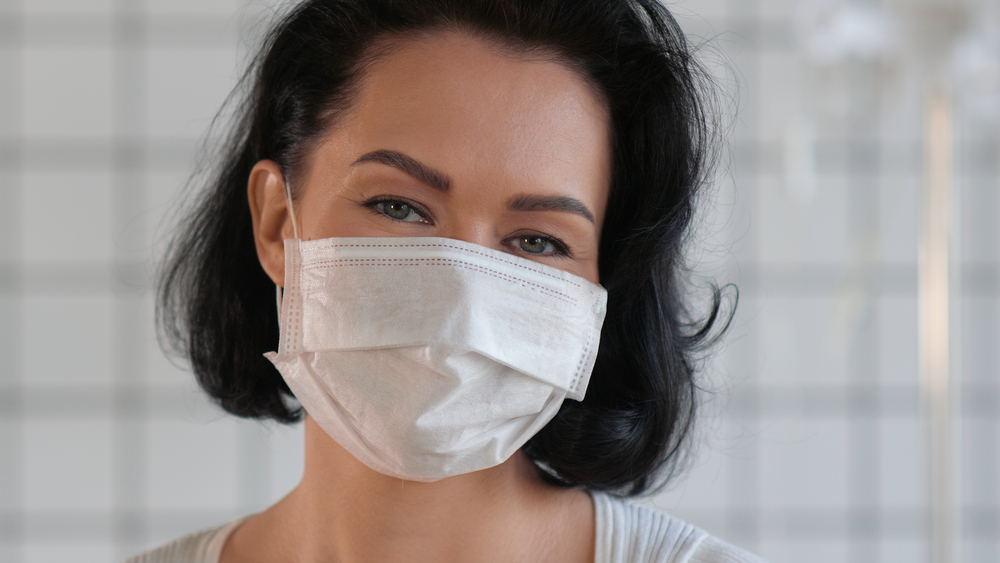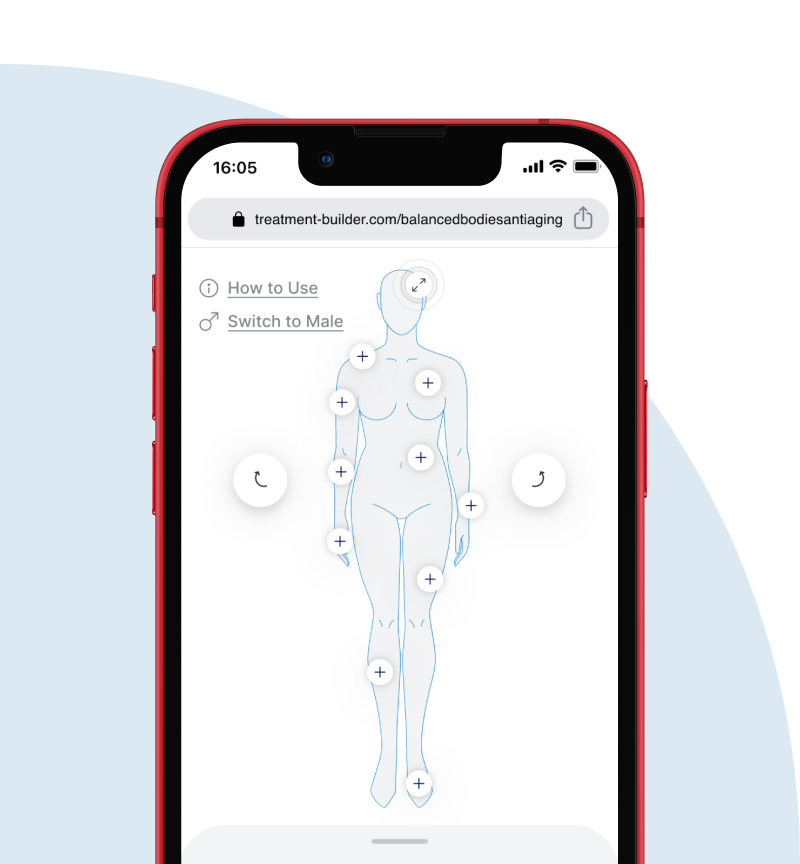Hormone replacement therapy has become the go-to approach to address hormonal issues. At Balanced Bodies Anti-Aging Clinic in Lawrenceville, GA, we are aware of the importance of hormonal balance and its impact on your health. In today’s post, we will explore who is a good candidate for hormone therapy, the specific benefits it offers for men and women, and how you can get started with a
telehealth consultation.
Who Is a Good Candidate for Hormone Replacement Therapy?
Hormone therapy is a specialized medical treatment that can help restore hormonal balance and address various health concerns. Both men and women can benefit from it, but it is essential to
book a consultation and determine if you are eligible before getting started. Good candidates are individuals who are experiencing symptoms associated with
hormonal imbalances, such as fatigue, low libido, mood swings, or hot flashes.
Those who have been diagnosed with hormone-related conditions, such as
menopause, perimenopause, andropause, or hypogonadism, may also be suitable candidates. Hormone therapy aims to optimize hormone levels, providing relief from symptoms and promoting overall well-being. If you are experiencing hormonal imbalances or related symptoms, a telehealth consultation with Balanced Bodies Anti-Aging Clinic can help.
Female Hormone Therapy
Female hormone therapy focuses on addressing hormonal imbalances in women. It involves the replacement or supplementation of specific hormones that naturally decline with age, such as estrogen and progesterone. Estrogen plays a crucial role in regulating the menstrual cycle, maintaining bone density, and promoting overall well-being.
Progesterone helps balance estrogen levels and is vital for reproductive health. Female hormone therapy aims to alleviate symptoms related to hormonal fluctuations like hot flashes, night sweats, mood swings, and vaginal dryness. By restoring hormonal balance, this treatment can enhance quality of life and promote health and wellness.
Menopausal Women
Menopause is period in a woman’s life that signifies the end of her reproductive years. Typically, it starts between the ages of 45 and 55, and it brings about a significant decline in hormone production. This shift can lead to a variety of unpleasant symptoms. It can also cause reduced bone density and therefore put a woman’s health at risk.
Hormone therapy can be highly beneficial for menopausal women because it replenishes estrogen and progesterone levels. When the hormonal balance is restored, symptoms like mood swings are alleviated, and bone health is improved. This enables women to navigate through this transition with greater ease.
Perimenopausal Women
Perimenopause is the phase leading up to menopause when hormonal fluctuations and irregularities begin to occur. It typically starts in a woman’s late 30s or early 40s and can last for several years until menopause is reached. During this phase, hormone levels, particularly estrogen, fluctuate unpredictably, resulting in symptoms such as irregular periods, mood swings, sleep disturbances, and changes in menstrual flow.
HRT can help balance hormone levels during perimenopause, providing relief from symptoms and improving overall quality of life. By addressing hormonal imbalances early, we can support women in managing the physical and emotional changes associated with this stage of life.
Women Experiencing Surgical Menopause
Surgical menopause occurs when a woman’s ovaries are surgically removed, resulting in an abrupt and permanent cessation of hormone production. This procedure may be performed due to conditions such as ovarian cancer or endometriosis, or to reduce the risk of certain genetic conditions.
Women who undergo surgical menopause often experience intense symptoms, similar to those of natural menopause, due to the sudden loss of estrogen and progesterone. HRT is highly beneficial for these women, as it can effectively restore hormone levels and alleviate symptoms. HRT offers support and relief to women experiencing surgical menopause, helping them maintain optimal health.
Women with Medical Conditions
Certain medical conditions can disrupt the delicate balance of hormones in women, leading to imbalances and associated issues. Conditions such as polycystic ovary syndrome (PCOS), thyroid disorders, adrenal gland disorders, and certain autoimmune diseases can all contribute to hormonal irregularities. PCOS, for instance, involves the overproduction of androgens, leading to menstrual irregularities and other symptoms.
Thyroid disorders, such as hypothyroidism or hyperthyroidism, can affect hormone production and metabolism. Adrenal gland disorders, like Cushing’s syndrome or Addison’s disease, disrupt the production of cortisol and other hormones. Hormone therapy can be an effective treatment option for women with these medical conditions.
Women Whose Quality of Life Is Affected
Menopause brings about a range of symptoms that can significantly impact a woman’s quality of life. Hot flashes, night sweats, mood swings, and sleep disturbances are just a few examples of the challenges women may face during this phase.
These symptoms can disrupt home life and work life, leading to irritability, difficulty concentrating, fatigue, and decreased productivity. By addressing menopausal issues, HRT allows women to regain control over their lives and enjoy a better quality of life both at home and in the workplace.
Testosterone Replacement Therapy
Testosterone replacement therapy is a treatment designed to optimize testosterone levels in men. This hormone is responsible for various aspects of male health, including muscle mass, bone density, libido, and mood regulation. Testosterone levels naturally decline with age, leading to symptoms such as fatigue, reduced sex drive, muscle loss, and cognitive changes.
TRT involves the administration of testosterone through various methods like injections, patches, or gels. By restoring testosterone levels, this therapy aims to improve energy, libido, muscle mass, cognitive function, and overall well-being in men. If you have low T, book a telehealth consultation with us at Balanced Bodies Anti-Aging Clinic to discover how this treatment works.
Men with Diagnosed Low Testosterone
Low testosterone, also known as hypogonadism, can have a significant impact on men’s health and well-being. Common symptoms include decreased sex drive, erectile dysfunction, fatigue, reduced muscle mass, and mood changes. Men are typically diagnosed with low testosterone through blood tests that measure hormone levels.
Once a man is diagnosed, testosterone replacement therapy becomes a crucial treatment option. By restoring testosterone levels to a healthy range, hormone replacement therapy can improve libido and enhance energy levels.
Men with Medical Conditions
Several medical conditions can contribute to low testosterone levels in men. Issues such as pituitary gland disorders, testicular cancer, obesity, and chronic illnesses like diabetes and HIV/AIDS can affect testosterone production. Pituitary gland disorders can disrupt the signaling between the brain and the testes, leading to low testosterone.
Testicular cancer and its treatment, including radiation therapy or removal of the testicles, can significantly impact testosterone production. Obesity is associated with increased estrogen levels, which can suppress testosterone production. Chronic illnesses and certain medications can also affect hormone production and result in low testosterone. HRT, tailored to address specific medical conditions, can be a valuable treatment option for men.
Men with Fertility Issues
Hormonal imbalances, including low testosterone, can significantly impact male fertility. Testosterone plays a crucial role in sperm production and overall reproductive function. When levels are low, it can lead to decreased sperm count, poor sperm motility, and abnormal sperm morphology, all of which can contribute to fertility issues. These challenges can be emotionally distressing for men, affecting their mental health and overall quality of life.
TRT is an effective treatment option for men with fertility issues due to low T. By restoring testosterone levels to a healthy range, TRT can improve sperm production and alleviate the psychological burden associated with fertility struggles. TRT offers hope for men who desire to start or expand their families by addressing the underlying hormonal imbalance.
Men with Age-Related Low T
As men age, testosterone production naturally declines, leading to a condition known as andropause or age-related low testosterone. This decline in hormonal levels can impact various aspects of a man’s life, including energy levels, sexual function, and overall well-being. TRT alleviates the symptoms associated with andropause and promotes a better quality of life. It offers a valuable solution for men navigating the challenges of age-related changes.
Should I Book a Telehealth Consultation?
Booking a telehealth appointment can be an excellent option for individuals seeking hormone therapy. If you are considering HRT and have questions or want to explore your options, scheduling an online consultation at our clinic can provide the convenience and expertise you need.
Telehealth sessions allow you to connect with our healthcare professionals remotely, from the comfort of your home. During the consultation, you can discuss your concerns, medical history, and treatment goals, and we can provide personalized guidance and recommendations. Telehealth sessions work well because they offer convenience, flexibility, and accessibility.
Improve Your Quality of Life with HRT
HRT offers transformative benefits for individuals experiencing hormonal imbalances. Whether you are a woman navigating the challenges of menopause or a man facing the effects of low T, hormone replacement therapy can restore balance and enhance well-being. Don’t let hormonal imbalances hinder your vitality and happiness.
Send us a message at Balanced Bodies Anti-Aging Clinic in Lawrenceville, GA to discover how this treatment works.



